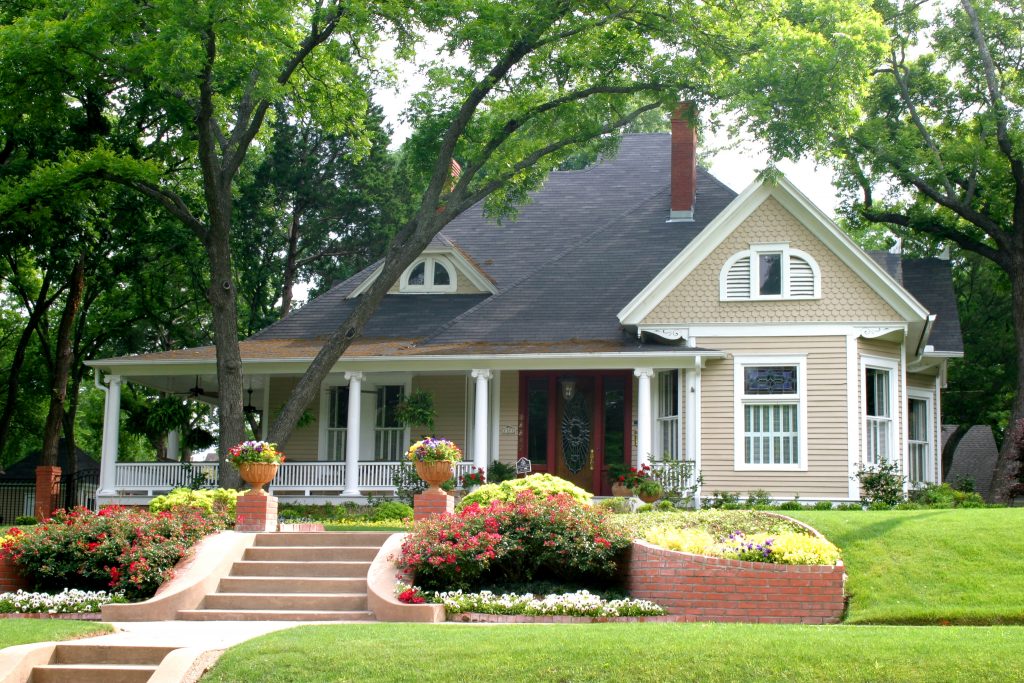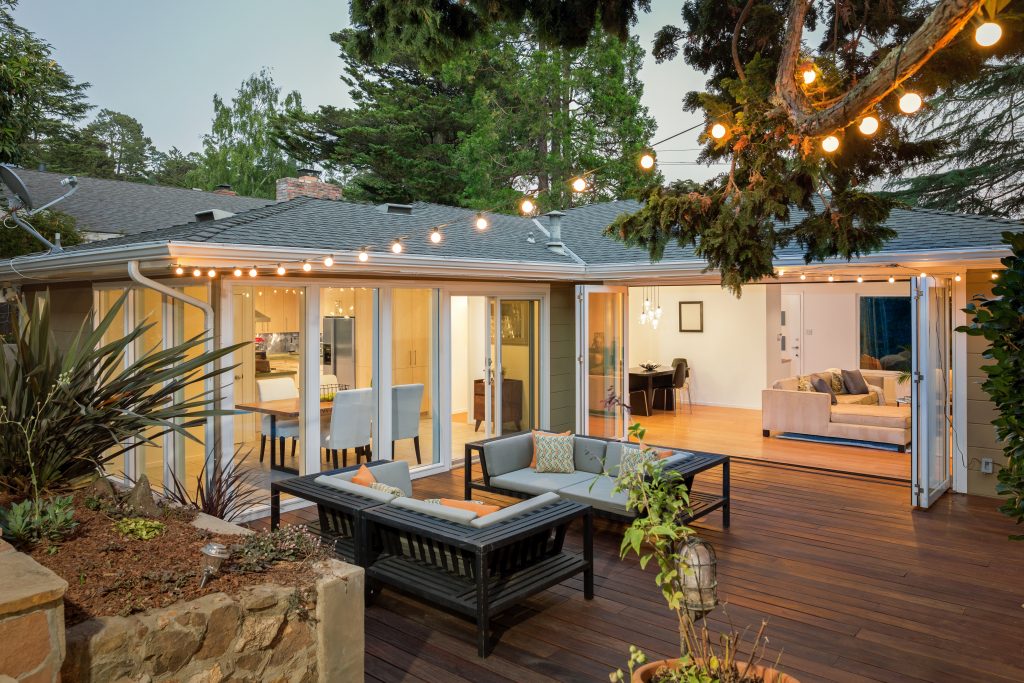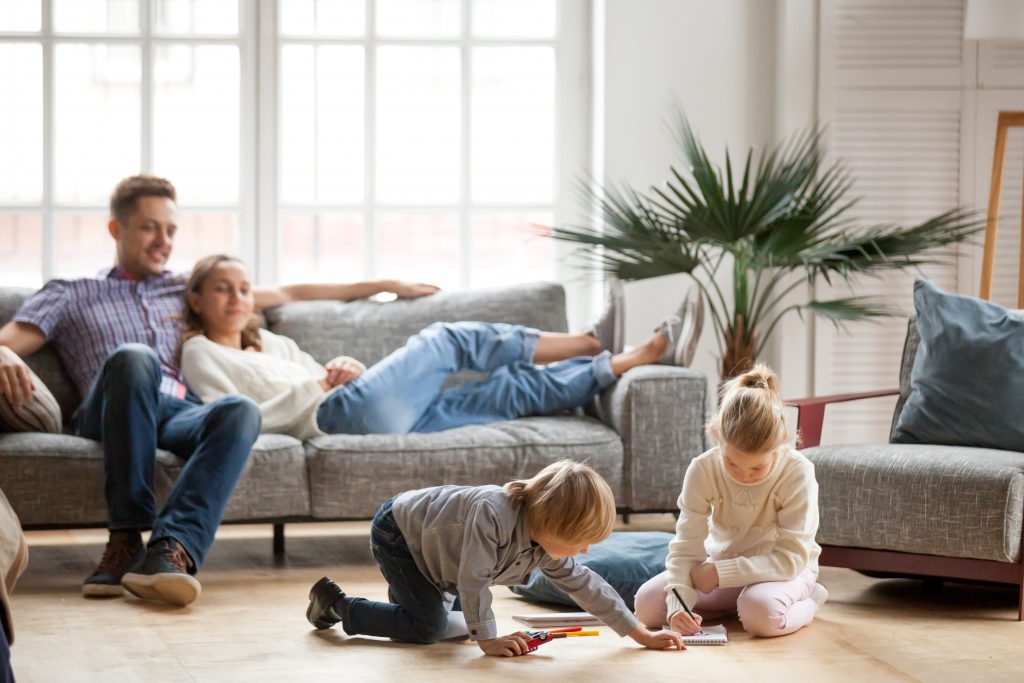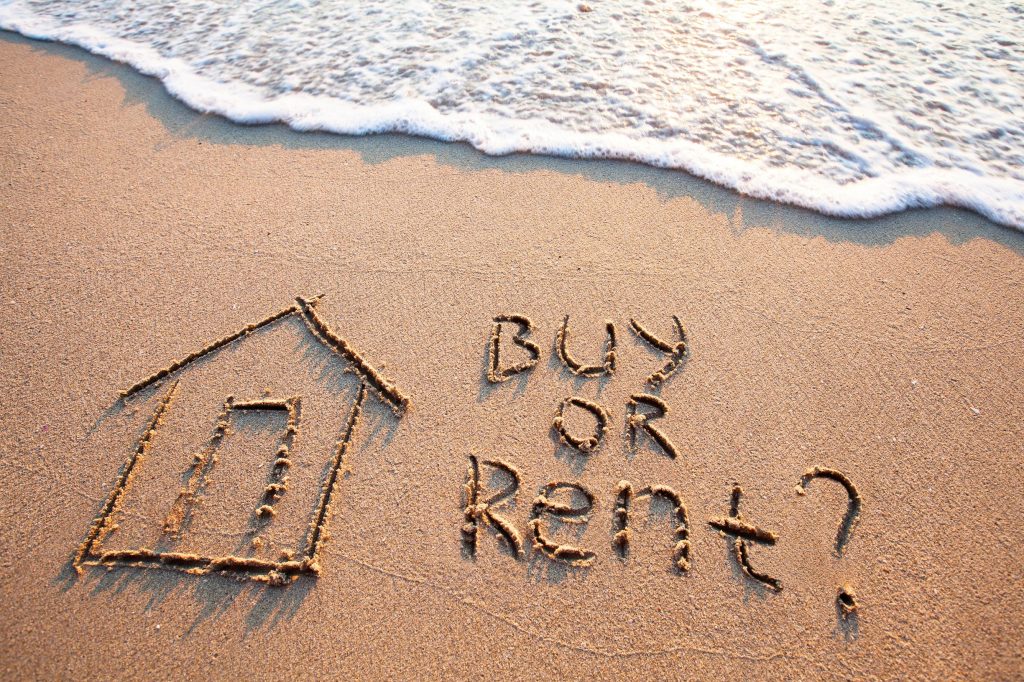The decision of renting vs owning your next home isn’t an easy one. There are a number of
factors to consider that go way beyond finances. Without thinking long and hard about it, you might end up in troubled waters.

The fact is, many people end up owning simply because it’s widely considered to be the next logical
step in adulting. Sometimes, though, this isn’t the right choice, and they’d actually be better off renting. On the
other hand, a large number of tenants could stand to benefit more from buying.
It boils down to your personal circumstances, plans, and goals, combined with where you are financially. It’s well worth carefully weighing up the options, and knowing the pros and cons of both renting and buying. Take a look below to see what each entail.
Flexibility vs Stability
Before considering the financial cost of buying compared to renting, it’s a good idea to think about the
emotional and psychological pros and cons. Put simply, renting gives you a lot more flexibility to travel
and change career compared to owning a home. By owning a home, however, you will gain the stability
that few rentals can offer.
Think long and hard about what’s more important to you, and what plans you have for the future. Do
you plan to settle for the foreseeable future, raise a family and grow your career? Or are you at a stage
in your life where predictability bores you, and you’re not set on a particular path right now. If you crave
the freedom to up and leave whenever you feel like it — or require it for your job — it’s much easier to
do so if you’re renting.
Selling a home is a lengthy, and sometimes expensive process, making it more difficult to up and leave
when the feeling takes you. However, what ownership lacks in flexibility, it makes up for instability.
With a fixed rate mortgage, your monthly repayments won’t change, allowing you to budget accurately,
and to know where you’ll be financially each month. For example, if you’ve been eyeing up Houston
homes for sale, and have budgeted properly, you can be fairly confident that you’ll be able to afford the
monthly payments required to live in the city.
As a tenant, you lack this stability. Your rent can increase at the end of your lease, to a price you can no
longer afford. Alternatively, your landlord might sell the property, or simply not renew your lease,
leaving you homeless.
Doing The Sums
Of course, you can’t let your heart rule your head, and it’s wise to do a bit of number crunching as well
when weighing up your choices. The numbers may sound relatively simple at first glance, but there are a
lot of hidden costs, and things aren’t always what they seem.
The Initial Cost

When you start a new lease as a renter, you typically have to pay your first and last month’s rent in
advance, alongside a security deposit, which is normally the equivalent of a month’s rent. So, imagining
you’re renting a place for $1,000, you can expect to pay $3,000 up front. The only other initial costs may
be moving fees.
When buying, you’ll typically need to pay a down payment of at least 3% of the final price, though larger
payments — up to 20% — are more common. On top of the down payment you’ll normally need to pay
closing costs; legal fees, Realtor fees, home inspection, and appraisal, to name a few. Add to this moving
fees, insurance, PMI (private mortgage insurance) if your down payment is below 20%, taxes and
possibly utility hookups, and things soon add up.
If you plan to buy, you’ll definitely need to have more cash up front than compared to renting.
Building Equity
Though you’ll pay more initially, buying a home can be seen as an investment, right? In theory, you will
build equity with each mortgage payment, though it often takes many years before you start seeing any
noticeable gains. Until your home is fully paid for and the amortization period is over, however, you
won’t have easy access to this money.
There’s no guarantee that you’ll make money on your home either. Several factors can cause your home
to lose value over the period you own it. An increase in newly built properties in your area or the decline
of a once reasonable neighborhood are just 2 factors that can lead to a drop in house prices.
When you rent, your monthly payments go towards your landlord’s mortgage, so you don’t put anything
aside for yourself. In this way, many people argue that renting is a waste of money. But is it really?
Wasting Money?

While your rent doesn’t build up for you to enjoy several years down the line, that’s not to say you’re
throwing money down the drain. You do need somewhere to live, so it’s money well spent! In some
cases, mortgage payments can be lower than renting a similar property in the same area, but that’s not
to say that it works out cheaper to buy.
Owning a home means paying a wide array of other monthly or annual costs as well as the mortgage;
from property taxes and repairs to insurance and services such as trash pickup and pest control. On the
whole, you might well be able to save more money from renting rather than buying, since you only pay
rent and bills. And, the extra money you save — plus what you’ve already avoided paying initially — can
go towards assets and investments that can be tapped into more readily than a home.
Responsibilities & Freedom
When you rent, all you have to worry about is paying the rent and bills on time. If something breaks,
give the landlord a call and it’s down to them to fix it. Of course, they might not get round to fixing the
problem as quickly as you’d like, but at least it’s not your concern. Homeowners are responsible for
managing and paying for maintenance and repairs, and other service providers, and must keep on top of
all of these things.
On the flip side, your home is yours to do with as you wish. Redecorate, remodel, extend or convert, it’s
entirely down to the homeowner what they do, allowing them the freedom to create their dream home.
Tenants are a lot more restricted, and depending on the rules laid out by the landlord, might not even
be allowed to put an extra shelf up. Additionally, many landlords don’t allow pets, smoking and a wide
array of things you might want in your life.
Typically, owning a home is more time-consuming than renting, leaving homeowners with less free time
than renters. Of course, this isn’t always the case, but many owners admit to spending a lot of their free
time working on the upkeep of the house. Since there are fewer responsibilities when renting, you
generally have more leisure time.
Which is Best For You?

To sum up, let’s take a look at the main pros and cons for both renting and buying. Ultimately, your
personal circumstances, motivations, future plans and financial situation will steer you in the right
direction. Go in with your eyes open though, and think hard about which options will be best for you in
the long run.
Advantages of Renting
● Flexibility: you have the freedom to leave whenever it suits you. Ideal for modern jobs and those who wish to travel
● Low initial cost: compared to buying, it’s far cheaper to move into a new rental.
● Fewer responsibilities: when things go wrong, it’s not your time or money that will be used to fix it, it’s the landlord’s responsibility.
● You may be able to rent in an area that would be too expensive to buy.
● More cash in your pocket: savings from dodging the down payment and other initial fees of buying, plus larger monthly savings, can be used for anything from traveling to investing in more fluid assets and investments.
Disadvantages of Renting
● Less stability: your landlord may decide to sell the property leaving you homeless, and there’s no guarantee a lease will be renewed once it expires.
● Rent prices can rise: rent prices will typically adjust fairly frequently.
● What you see is what you get: you normally can’t decorate or make other changes to your living space.
● You don’t save equity: your rent doesn’t build up for you to spend later.
Advantages of Owning
● Stability: you can settle and know that your home is yours and no one can kick you out. This is ideal for families.
● Potential growth in wealth: homeownership is an investment that can see your personal wealth grow over the years.
● Freedom to renovate: your house is yours to do pretty much what you want with, allowing you to personalize it and make it yours.
● You can rent it out: Need a little extra cash in your pocket? You can rent a part of or all of your home.
Disadvantages of Owning
● Huge financial responsibility: the payments don’t end, even after you’ve paid off your mortgage you’re still responsible for maintenance, taxes, etc.
● Your home may lose value: house prices can and do drop for any number of reasons — there’s no guarantee you’ll make money when you sell.
● Less flexibility: it’s difficult and costly to sell your home, so if you need to relocate at the drop of a hat, this can be tricky.
This is a guest post by Point2 Homes

